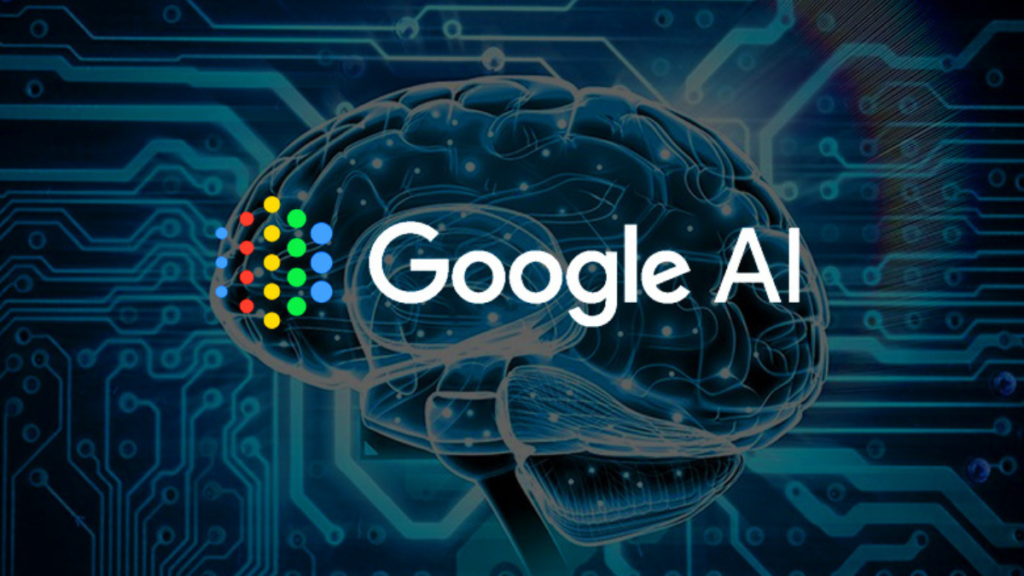Google’s Artificial Intelligence (AI) division has been instrumental in shaping the landscape of AI research and applications. The company’s AI capabilities include machine learning and deep learning, which form the backbone of Google services like Google Search, Google Photos, and Google Translate. Deep learning, with neural networks mimicking the human brain’s structure, has proven effective in image and speech recognition. Google has made significant strides in Natural Language Processing (NLP), enabling machines to understand and generate human-like text. The company has developed models capable of detecting diseases such as diabetic retinopathy and breast cancer from scans, potentially revolutionizing medical diagnoses. Google’s foray into self-driving cars exemplifies the company’s commitment to applying AI in real-world scenarios. Ethical considerations are increasingly important in Google AI development, with the company actively engaging in discussions around AI ethics. Google’s AI for Accessibility initiatives aim to make technology accessible to everyone, focusing on assistive technologies, speech recognition, and other innovative solutions. The company’s AI journey is poised for further innovation, with quantum computing and the integration of AI into daily life.
Google AI: A Brief Overview
Google’s journey into the realm of AI began with a mission to organize the world’s information and make it universally accessible and useful. The company’s commitment to this mission led to the creation of Google AI, a division dedicated to advancing machine learning and AI research. Google AI has since become a driving force in the development of cutting-edge technologies that influence everything from search algorithms to self-driving cars.
Machine Learning and Deep Learning at Google
At the heart of Google’s AI capabilities lies machine learning and deep learning. These technologies form the backbone of numerous Google services, such as Google Search, Google Photos, and Google Translate. The company leverages vast amounts of data to train its models, allowing them to continuously improve and provide more accurate and personalized results. Deep learning, with neural networks mimicking the human brain’s structure, has proven particularly effective in image and speech recognition.
Natural Language Processing (NLP) Breakthroughs
Google has made significant strides in Natural Language Processing (NLP), enabling machines to understand and generate human-like text. Google’s BERT (Bidirectional Encoder Representations from Transformers) model, introduced in 2018, marked a breakthrough in NLP by allowing machines to grasp the context of words in a sentence. This advancement has had a profound impact on search queries, making results more contextually relevant and enhancing the overall user experience.
AI in Healthcare: Improving Diagnostics and Treatment
One of the most promising applications of Google AI is in the field of healthcare. Google’s AI algorithms have demonstrated remarkable accuracy in diagnosing medical conditions from medical imaging data. In collaboration with healthcare institutions, Google has developed models capable of detecting diseases such as diabetic retinopathy and breast cancer from scans, potentially revolutionizing the speed and accuracy of medical diagnoses.
Google’s Autonomous Vehicles: A Marriage of AI and Transportation
Google’s foray into self-driving cars exemplifies the company’s commitment to applying AI in real-world scenarios. The development of autonomous vehicles involves complex decision-making processes, and Google has harnessed the power of AI to navigate these challenges. Through machine learning, these vehicles continually adapt to their surroundings, making split-second decisions to ensure the safety of passengers and pedestrians.
Ethical Considerations in Google AI Development
As Google continues to push the boundaries of AI, ethical considerations become increasingly important. The company recognizes the responsibility that comes with developing powerful AI technologies and is committed to ensuring that these technologies are used responsibly. Google actively engages in discussions around AI ethics, emphasizing transparency, fairness, and accountability in its AI development practices.
AI for Accessibility: Inclusive Innovations
Google’s commitment to making technology accessible to everyone is evident in its AI for Accessibility initiatives. The company explores ways to leverage AI to empower individuals with disabilities, whether through improved assistive technologies, speech recognition, or other innovative solutions. By prioritizing inclusivity in AI development, Google aims to create a more equitable digital landscape.
Future Prospects: The Continuous Evolution of Google AI
Looking ahead, Google’s AI journey is poised for further innovation. Quantum computing, an area in which Google has made substantial investments, holds the potential to revolutionize AI by solving complex problems at unprecedented speeds. Additionally, the integration of AI into more aspects of daily life, from smart homes to personalized virtual assistants, is on the horizon.
Conclusion
Google’s AI advancements have not only shaped the company’s trajectory but have also left an indelible mark on the broader landscape of artificial intelligence. From enhancing search algorithms to revolutionizing healthcare and transportation, Google’s commitment to pushing the boundaries of what AI can achieve has far-reaching implications. As the company continues to innovate, the future holds exciting possibilities for the intersection of Google and artificial intelligence.







